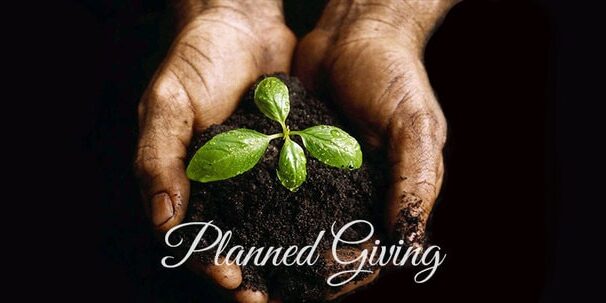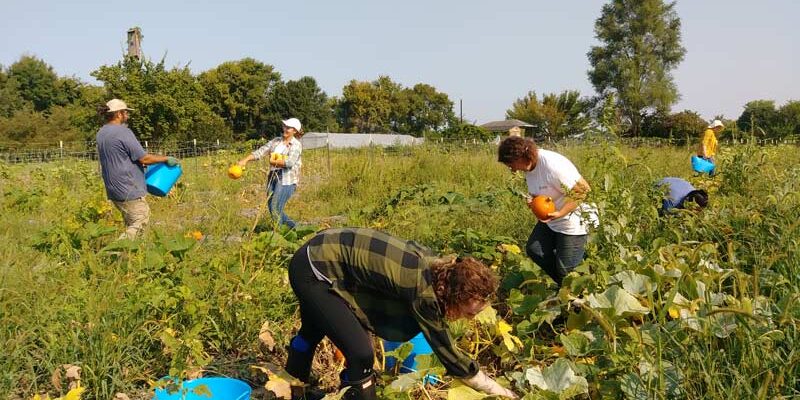Conscience, Candidates and Discipleship in Voting – Part two
During a recent gathering with women and men Religious, Cardinal Blaise Cupich was asked, in light of the coming elections, what resources were available to address the deep divisions within our nation as well as divisions in our Church. His immediate reply was to mention an address given by Bishop Robert W. McElroy at the University of San Diego on Feb. 6, 2020. In this talk, Bishop McElroy moves from Pope Francis’ “Evangelii Gaudium” to relevant issues of Catholic Social Teaching as he calls Catholic women and men, rooted in conscience and in faith, to action.

In preparing to vote, you are called to action. You are invited to ponder the message in the document, “Conscience, Candidates and Discipleship in Voting,” and then share the talk with three to five others. Given the length of the talk, it is appearing here in three parts. Part two follows:
Against the backdrop of these two monumental threats to human life, how can one evaluate the competing claims that either abortion or climate change should be uniquely preeminent in Catholic social teaching regarding the formation of Americans as citizens and believers? Four points should be considered:
- There is no mandate in universal Catholic social teaching that gives a categorical priority to either of these issues as uniquely determinative of the common good,
- The death toll from abortion is more immediate, but the long-term death toll from unchecked climate change is larger and threatens the very future of humanity,
- Both abortion and the environment are core life issues in Catholic teaching, and
- The designation of either of these issues as the preeminent question in Catholic social teaching at this time in the United States will inevitably be hijacked by partisan forces to propose that Catholics have an overriding duty to vote for candidates that espouse that position. Recent electoral history shows this to be a certainty.
The question of preeminence is further clouded by a third compelling issue our country faces in this election cycle – the culture of exclusion that has grown so dramatically in our nation during the last three years. Racial injustice is on the rise, buttressed by a new language and symbolism that seek to advance the evil of white nationalism and create structures of racial prejudice for a new generation.
Immigrants and refugees, who have been at the core of America’s history as a source of vitality and richness, are portrayed as a cause for fear and suspicion in our society rather than of solidarity. Members of the Muslim community are widely characterized as aliens whose religion automatically means they cannot be trusted, while incidents of vile and pervasive anti-Semitism are on the rise.
This growing culture of exclusion does not emerge as a specific policy question in our contemporary national politics; rather, it seeps into all of the most salient questions of life and dignity that our society faces and corrodes each one in turn.
The culture of exclusion has unleashed a poison of animosity against immigrants that paralyzes our politics so deeply that we cannot even find a pathway to protect young men and women who came to this nation as children and now thirst to be citizens of the only land they have ever known. The deadly imprint of racist structures and legacies on our criminal justice system magnifies fears and resentments among African American and Hispanic families and further imperils the men and women who give their lives to law enforcement. Racial and ethnic disparities in education, health, job availability and housing that are rooted in our nation’s historic culture of exclusion dramatically propel the breakdown of marriage and family life. And inequalities of wealth and income make it all but impossible to overcome the enduring challenges of work and poverty in our nation.
On virtually every question of human life and dignity, the growing culture of exclusion in our nation reinforces and propels cleavages that are highly destructive to all of the goals that lie at the center of Catholic social teaching. For this reason, many faith-filled Catholics believe that in this election cycle the most compelling issue that arises from Catholic social teaching for American voters is the need to repudiate radically this culture of exclusion before it spreads further and leads to new levels of moral paralysis and division.
Seen against this background of abortion, climate change and the culture of exclusion, it is clear that the faith-filled voter who seeks to be guided by Catholic social teaching is confronted by compelling moral claims that cut across the partisan and cultural divides of our nation. The pathway from these crosscutting moral claims to decisions on particular candidates is not a direct and singular one in Catholic teaching, rooted in one issue. For this reason, the drive to label a single issue preeminent distorts the call to authentic discipleship in voting rather than advancing it.
Opportunity, Competence and Character
In America today, a faith-filled voter is called to approach voting from a stance of bridge-building and healing for our nation. Such a voter is also called to integrate into his voting decisions the major salient elements of Catholic teaching that touch upon the political issues of our day, understanding that these teachings vary in priority and claim, but are united in their orientation to the common good.
But voting for candidates ultimately involves choosing a candidate for public office, not a stance, nor a specific teaching of the Church. And for this reason, faithful voting involves careful consideration of the specific ability of a particular candidate to actually advance the common good. In making this assessment, opportunity, competence and character all come into play.
The question of opportunity is pivotal in voting discipleship. What are the elements of human life and dignity that a specific candidate will actually be able to advance given the scope of the office she is seeking, the crucial issues that are likely to face her during her term, and the policy positions she embraces? What coalitions will she be likely to join and advance? In short, what capacity will she have, in the specific political context she will face, to transform law and public policy in key sectors in order to promote the common good?
Competence is also a central metric for faith-filled voters to consider. It does little good to elect a saint who echoes Catholic social teaching on every issue if that candidate does not have the competence to carry out his duties effectively and thereby enhance the common good. Faith-filled voters must assess the intelligence, human relations skills, mastery of policy and intuitive insights that each candidate brings to bear, for voting discipleship seeks results, not merely aspirations.
Finally, because our nation is in a moment of political division and degradation in its public life, character represents a particularly compelling criterion for faithful voting in 2020. In the United States, political leaders, especially at the highest levels, imprint their character in pivotal ways upon the entire political culture, and thus on society itself. Today, leaders in government embrace corrosive tactics and language, fostering division rather than unity. The notion of truth itself has lost its footing in our public debate. Collegiality has been discarded. Principles are merely justifications for partisan actions, to be abandoned when those principles no longer favor a partisan advantage. There is a fundamental lack of political courage in the land.
For all these reasons, character is an even more essential element in effective faith-filled voting at the present moment, and another reason why faith-filled voting cannot be simply reduced to a series of competing social justice teachings.
In the end, it is the candidate who is on the ballot, not a specific issue. The faith-filled voter is asked to make the complex judgment: Which candidate will be likely to be advance the common good through his office in the particular political context he will face? Such a decision embraces the planes of principle and character, competence and capacity. And for the faithful voter, the very complexity of this moral judgment demands a recourse to the voice of God which lies deep within each of us – our conscience.
Watch for Part three. The entire talk may be accessed here.



I was under the impression that it was illegal immigration that was being challenged and being fought by the federal government. Please correct me if I am wrong. Information from European friends, leads me to believe that open borders have led to dangerous situations in some major European cities where it is dangerous for even police to enter Muslim neighborhoods where sharia law is practiced. How do we differentiate between those who want to be part of our country and those who want to destroy it?
Immigration — The U.S. is both a nation of laws and a nation of immigrants. The following article provides teh foundational principles of these two truths which are embodied in the U.S. constitution and have been a part of this country. It lays out a path of reconciliation and balance that we now lack, our legislators being unable to negotiate to common ground. Knowing our history and constitution is a beginning point for this discussion. I hope this is helpful, Jean, and others.
https://www.americanprogress.org/issues/immigration/reports/2019/07/22/472378/restoring-rule-law-fair-humane-workable-immigration-system/